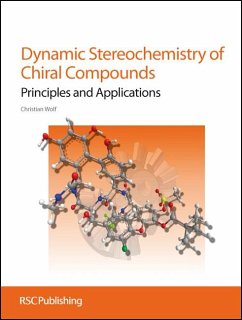This book provides an overview of fundamental concepts of asymmetric synthesis highlighting the significance of stereochemical and stereodynamic reaction control. Topics include kinetic resolution (KR), dynamic kinetic resolution (DKR), dynamic kinetic asymmetric transformation (DYKAT), and dynamic thermodynamic resolution (DTR). In-depth discussions of asymmetric synthesis with chiral organolithium compounds, atropisomeric biaryl synthesis, self-regeneration of stereogenicity (SRS), chiral amplification with chiral relays and other commonly used strategies are also provided. Particular emphasis is given to selective introduction, interconversion and translocation of central, axial, planar, and helical chirality. A systematic coverage of stereochemical principles and stereodynamic properties of chiral compounds guides the reader through the book and establishes a conceptual linkage to asymmetric synthesis, molecular devices that resemble the structure and stereomutations of propellers, bevel gears, switches and motors, and topologically chiral assemblies such as catenanes and rotaxanes. Racemization and diastereomerization reactions of numerous chiral compounds are discussed as well as the principles, scope and compatibility of commonly used analytical techniques. Details of analytical methods are provided and discussed as well as topics relating to the design of fascinating topologically chiral assemblies and molecular technomimetic devices in the context of dynamic stereochemistry. Strategies and recent developments that address important synthetic challenges are presented and highlighted with hundreds of examples, applications and detailed mechanisms. This exceptional book includes: - More than 550 figures, schemes and tables illustrating mechanisms of numerous asymmetric reactions and stereomutations of chiral compounds - Technical drawings illustrating the conceptual linkage between macroscopic devices such as turnstiles, ratchets, brakes, bevel gears or knots and molecular analogs - More than 3000 references to encourage further reading and facilitate additional literature research - A comprehensive glossary with stereochemical definitions and terms which facilitate understanding and reinforce learning This book will be of particular interest to undergraduates, graduates and professionals working and researching in the fields of organic synthetic chemistry and analytical chemistry.
Dieser Download kann aus rechtlichen Gründen nur mit Rechnungsadresse in A, D ausgeliefert werden.


